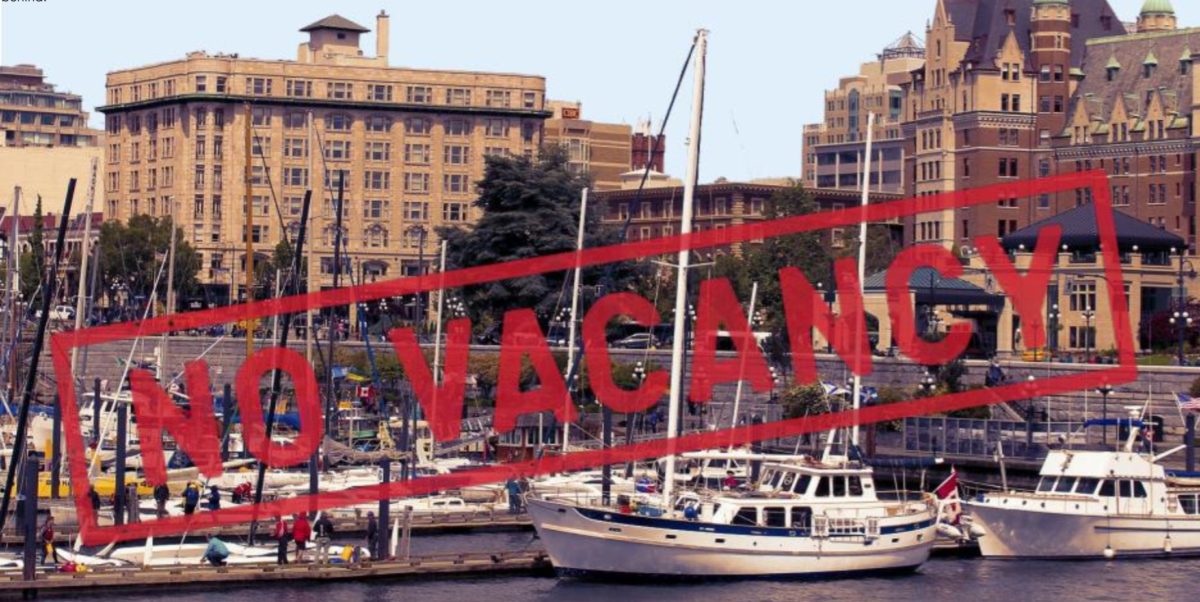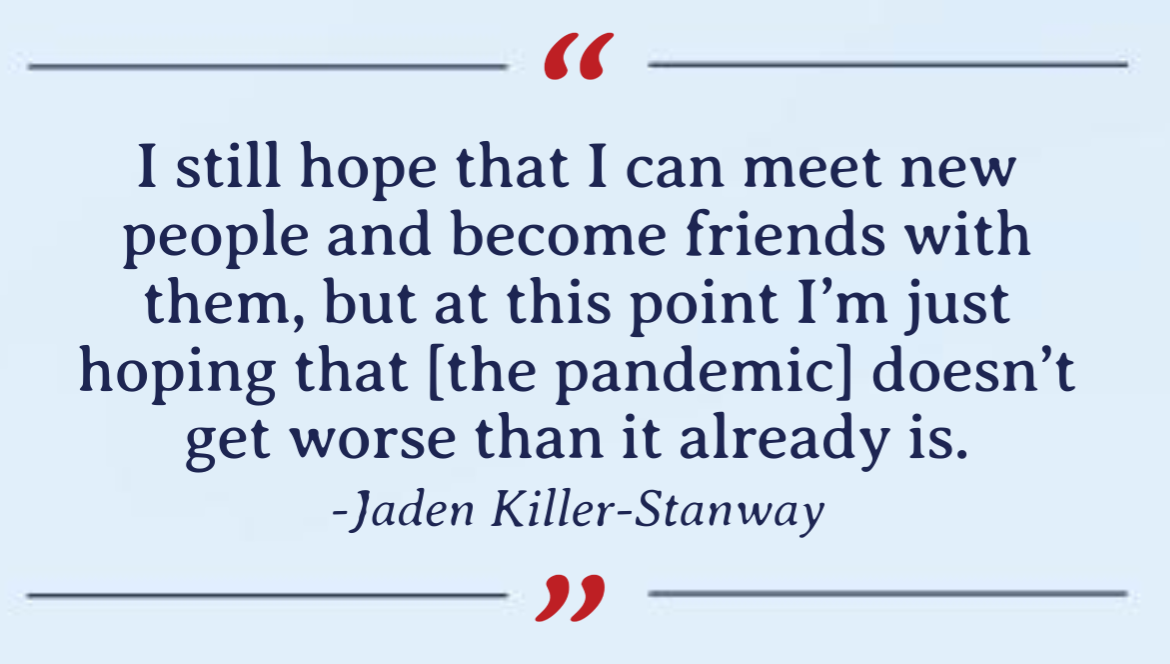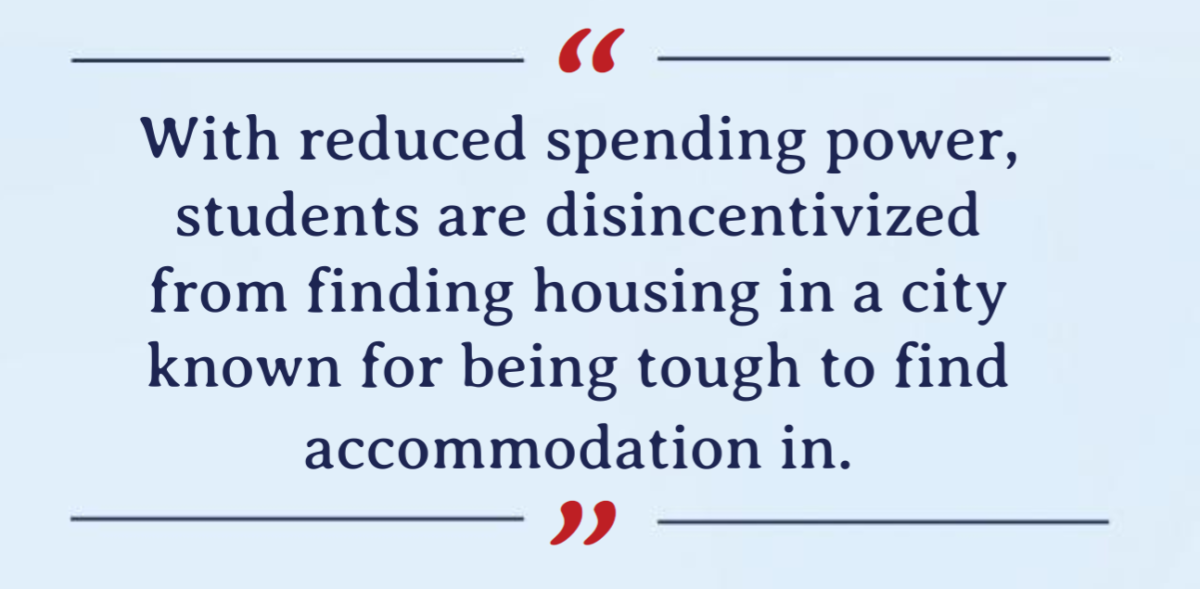Personal decisions, changing rental markets impacting how students secure roofs over their heads this fall amid COVID-19

On a mid-March morning, after the COVID-19 pandemic hit and UVic officially moved all courses online, Joe Hansen got a call from his mom.
He was planning on returning home to Olympia, WA at the end of the month. His mother, who was getting increasingly worried as Washington state became the first coronavirus hot spot in the U.S., urged him to come home immediately.
“I was like, well, I don’t know… ” Hansen says, his voice trailing off while recollecting the phone call with his mother some three months later. “She then said, I want you to come home.”
In a year with countless uncertainties, even 2020 can’t change some things. It doesn’t seem to matter if you’re an elementary school student, or studying university abroad in a foreign country, mom’s word is final. Hansen was going home.
Hansen, a fourth-year medieval studies and creative writing student at UVic, stuffed his clothes into a duffle bag — which his landlady gave him earlier that morning — and boarded one of the final ferries to Port Angeles before the Black Ball Ferry Line suspended service on March 30.
“I had a bigger suitcase I left behind after winter break in Olympia and was like, ‘I don’t need it.’ And then I did,” he says. “I left a lot of junk behind, stuff I couldn’t carry. I grabbed my Nintendo and my DnD books, but aside from that I left a whole library behind.”
After spending the past four months at home, Hansen is facing a multitude of housing problems and is unsure of when he’ll return to Victoria.

For the past two years, Hansen’s landlady, who is friends with his mother in Olympia, rented him her daughter’s room while she was away at university in Toronto. However, with the daughter’s courses online, she will be staying in her own room throughout the fall.
Hansen’s landlady then offered him an apartment underneath her home. The problem for Hansen, though, is that right before the COVID-19 pandemic, his landlady rented out the apartment to a group of people from the Czech Republic.
“They got stuck in a problem where they can’t work to get enough money to move back to the Czech Republic, and she [the landlady] can’t kick them out because that’s cruel,” says Hansen. “So I’m stuck. I could look for other options but I’m fond of where I’ve been.”
Hansen’s murky situation is far from an outlier for students across the country who are weighing the options of returning to Victoria or not.
On May 12, a Canadian Association of University Teachers and Canadian Federation of Students survey found that most students were reconsidering their fall plans because of the pandemic.
In a survey of 300 high school and 800 post-secondary students, one in two respondents said COVID-19 has made it harder for them to afford tuition and living costs. 30 per cent of returning and new students said they may change their plans about enrolling in a post-secondary school in the fall.
In May, UVic and several other Canadian universities — including UBC and McGill — announced that the majority of courses in the fall term would be online. On May 25, in an open letter to students, McMaster University’s president and vice-chancellor David Farrar wrote that all classes for the fall semester would be online and “with few exceptions” — students would not be required to return to campus in Hamilton, Ontario.
Housing on campus
Jaden Killer-Stanway, who aspires to be an astrophysicist, is an incoming first-year Science student from Vancouver who will be living on campus.
He’s one of the lucky ones to secure a spot in the cluster neighbourhood. UVic has historically had a first-year guarantee for fresh-faced undergrads looking to live on campus. Due to COVID-19, that is no longer the case. A lottery system has been set in place for first-years, upper years, and graduate students, with the first-year lottery as priority.
Despite “all the COVID stuff,” Killer-Stanway is still looking forward to living on campus. At home, he found it difficult to concentrate on his online classes.
“If I am going to university, I want to go to a place where I can focus more,” said Killer-Stanway.
While UVic has been notorious for its party culture in the past — to the point where structural damage in cluster housing has occurred from “rhythmic activities,” according to a UVic report — parties with over a hundred students are sure to be a reliv of the pre-pandemic life. In Vancouver, a recent hundred-person party resulted in 45 confirmed cases of COVID-19.
Making new friends and meeting new people will look radically different in a world of COVID-19. UVic has committed to no non-resident guests in residence, and a limit of one guest at a time for residents visiting other residents.
Masks will also be required in shared indoor spaces, including lounges, hallways, and bathrooms, in addition to compliance with any physical distancing requirement signage posted inside the residence buildings.
“I still hope that I can meet new people and become friends with them, but at this point I’m just hoping that [the pandemic] doesn’t get worse than it already is,” said Killer-Stanway.
Double rooms have been transformed into “super singles,” and the occupancy limit for cluster housing has been halved to two.
“We are committed to building healthy, positive communities in residence and are looking at ways to engage students virtually while maintaining the health and safety of our staff and students,” UVic Residence Services states on their website. They reiterate they will follow all provincial health and safety guidelines to ensure campus residence is a safe spot to live amid a global pandemic.
While UVic’s residence website says that the university is expecting significantly fewer first-year students living in residence this fall, the demand for on-campus housing seems to have stayed the same. While Killer-Stanway — who had a lottery number of 151 — got his spot, his friend who had a number in the nine hundreds wasn’t so lucky.
A “new normal” for student housing
The rental market in Victoria has been notoriously fickle for years. Mayor Lisa Helps cited 2011 to 2016, a period of population growth for the city, as a key juncture for when housing availability began to decline.
Helps cited the growth of various sectors like tourism, technology, and the public sector as reasons for the city’s expanding size, noting that there was an estimated shortage of 900 housing units in the city four years ago in 2016.
The city of Victoria’s economic vibrancy has made it an attractive city for many from outside the region, with an annual population growth rate sitting at 1.2 percent. This growth expected to continue well into the decade.
The nearby District of Saanich, where UVic is located, is a popular choice for students due to its proximity to the school. As of 2019, the city reported a vacancy rate of just 0.6 per cent, acknowledging that the combination of “limited rental availability and cost barriers” played an active role in impeding housing accessibility for renters.
Studies conducted by groups like the Community Social Planning Council of Victoria and Coastal Research, Education, and Advocacy Network (CREAN) — previously known as VIPIRG — particularly highlighted the ongoing nature of the housing crisis. These studies have shown that “high competition” for properties has been a common thread among many students’ experiences in seeking out accommodation.
Only this past June after a five-hour long council hearing did the District of Saanich raise the cap on “persons unrelated by blood of marriage occupying a single unit” from four persons to six.
The unpredictability of COVID-19 has made it even more difficult to predict even the near future of Victoria’s mental market in the coming months.
As UVic shifted to “predominantly online” course delivery, many students were left wondering if staying in Victoria was necessary.
With many students commonly finding rental properties for the fall semester during the summer months, the market has shown signs of loosening up as a result of the pandemic’s hit on “pull factors” for students to remain in the city.

In an interview with the CBC, the owner of Associate Property Management, Sean Paulsen, stated that “student housing isn’t great [for landlords] right now.” He cited student cancellations and rental agreements cut abruptly short as having played a part in the rental market’s downturn.
Data from House Hunt Victoria, a blog run by realtor Leo Spaltehold and Royal Lepage Realty, also illustrate the impact of unemployment on the real estate market in Victoria. Cities across Canada saw numbers around a 20-40 per cent decrease in the amount of hours worked from February to April of 2020.
The disproportionate impact of these numbers on students is significant. In CREAN’s study on the housing shortage, roughly 40 per cent of students surveyed relied on employment as their primary source of income.
With reduced spending power, students face a greater financial barrier in the search for accommodation in the British Columbian capital already known for its high cost of living.
Despite the ongoing pandemic, projects put into motion by the province have not come to a stop. Two new residential buildings for students are tcurrently underway. On July 27, Premier John Horgan came onto campus to mark the start of the project. The $200 million-plus and 783-bed capacity project is an ambitious push from the BC government.
In an email from the office of Minister of Advanced Education, Skills and Training Melanie Mark, who accompanied Horgan to the ceremony, Mark stated that the initiative was part of a larger effort from the provincial government “to deliver 114 000 affordable homes through partnerships [with BC education institutions] over 10 years,” as promised in Budget 2018.
Of that amount, $450 million was specifically committed for post-secondary institutions like UVic, who work in collaboration with the BC Student Housing Loan program to move forward with housing projects like this one meant to ease the housing crunch from a more long-term perspective.
Uncertain future ahead for student housing
In any normal year, UVic students would be returning to Victoria in droves in the fall. Being no small minority, about 75 per cent of the UVic’s student population came from outside the Greater Victoria region.
For Hansen, who wants to return to Vancouver Island, the pandemic has not only impacted his housing situation — the switch to an online-focused semester has altered his expected graduation timeline.
Originally, he planned to finish university in four years, but he’s choosing to remain in Olympia until his landlady’s apartment becomes available and is taking four courses over the next two terms — the minimum required to keep his student visa.
Two months ago, in a poll of 408 students, the Martlet reported that only 2.5 per cent felt like online courses are the same quality as in-person classes.
“I took a couple summer courses at the beginning of this summer term, and they kicked my butt,” he says. “So I’m a little bit nervous, I don’t know if that’s because they were summer courses and it was an entire course packed into one month, or because they were online.”
In the meantime, with his landlady’s daughter staying in the room he would normally rent, and a family from the Czech Republic staying in an adjacent apartment, Hansen is stuck at home in Washington state — which as of early August had recorded over 65 000 total coronavirus cases to date — and waiting for an opening to return to Victoria.







